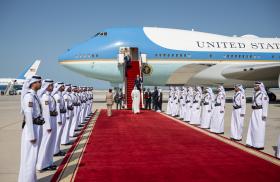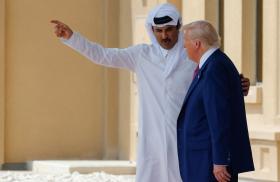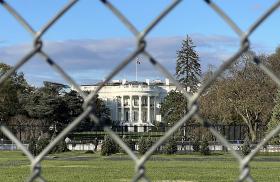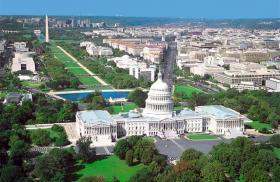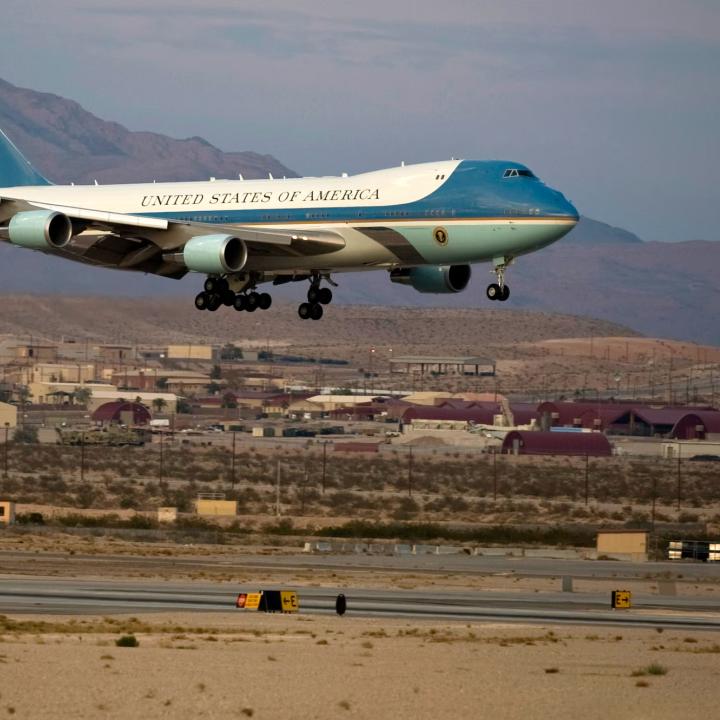
- Policy Analysis
- Interviews & Presentations
President Trump's Gulf Trip: Previewing the Agenda

Part of a series: President Trump's 2025 Gulf Trip
In this first of several daily videos from Washington Institute scholars, Dana Stroul previews the destinations and agendas of President Trump's May 2025 trip to the Gulf region.
This week kicks off the first deliberately planned trip of the second Trump administration. The president is already on the plane on his way to Saudi Arabia. Tomorrow, when he lands, he'll have meetings with the King and the crown prince of Saudi Arabia. On the second day of the trip, he'll have a meeting with the six governments of the Gulf Cooperation Council. Day three will see him in Doha, Qatar. And day four in Abu Dhabi in the United Arab Emirates.
Now, similar to the first Trump administration, the president's first deliberately planned trip was to Saudi Arabia, where he also attended a big summit with the countries of the Gulf Cooperation Council. This time, of course, as he takes off for the Middle East, there's a ton of late breaking news that could constitute some real tectonic shifts with implications for the Middle East.
As I speak now, U.S.-Israeli citizen Edan Alexander has been released from captivity by Hamas in Gaza. The fourth round of U.S.-Iran discussions on Iran's nuclear program just concluded. Last week saw a cease fire declared between the United States and the Houthis in Yemen, again facilitated by Oman.
What's unique about this trip, however, is that rather than questions about what the United States is going to deliver for the region, this trip is going to be about what the Gulf monarchies can deliver for the United States.
What's on the table during President Trump's trip to the Middle East is the size and scale of the billions and trillions of dollars of economic agreements, investment pledges, and cooperation on the future of artificial intelligence and semiconductors that the president and the Gulf governments hope to close this week.
But there's a lot of issues around the table that are unlikely to be brought to closure this week, but certainly are going to be under active discussion.
What is the future of the U.S.-Iran nuclear negotiations on Iran's program? Will there be war later this year if diplomacy fails? What's the future of Israel's military operations in Gaza, and how will the remaining Israeli hostages held by Hamas be secured while getting humanitarian aid into Gaza for the millions of Palestinians in need?
What about the future of the two-state solution between Palestinians and Israel, which is certainly high on the agenda of Gulf leaders? What about the suite of U.S. bilateral Saudi agreements such as a mutual defense treaty or a civilian nuclear agreement? And of course, the question of Saudi-Israel normalization. We're unlikely to see these issues brought to closure this week, but certainly we should expect to see progress and advancement as they discuss those high priority issues.

